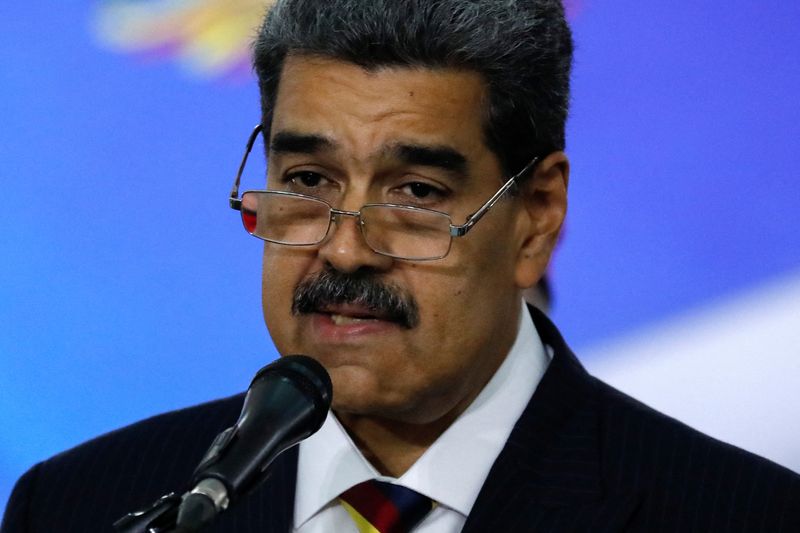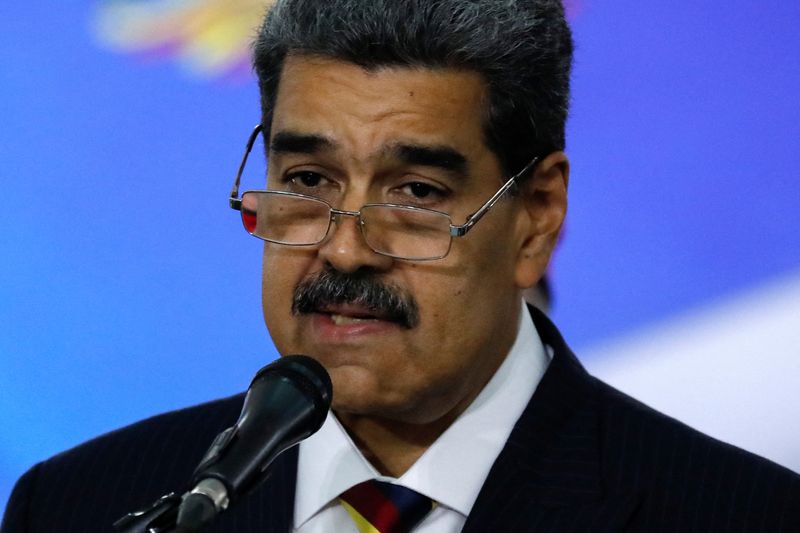
CARACAS (Reuters) -Venezuela’s President Nicolas Maduro on Tuesday made major changes to his cabinet, including leadership of the oil and finance ministries and state oil company PDVSA, after a contested election both the ruling party and the opposition claim to have won.
Anabel Pereira is new finance minister, while Hector Obregon is the new president of PDVSA, replacing Pedro Tellechea, who will move to head the Industry Ministry, Maduro said on state television.
Vice President Delcy Rodriguez will remain in her post, but add the oil ministry to her brief, Maduro added.
Yvan Gil and Vladimir Padrino will remain in their respective posts as foreign minister and defense minister, Maduro said, while ruling party leader Diosdado Cabello will be the new interior, justice and peace minister.
The changes are “a profound renovation of the national government and we are putting together a new team which will help us transition everything for this era, open new paths … speed the changes the people need,” Maduro said during an event broadcast live.
Cabello, a close ally of Maduro’s predecessor, the late Hugo Chavez, returns to the cabinet after being the second in command of ruling party PSUV. He is a former vice president and lawmaker and served as interior and justice minister in the early 2000s.
“Today I think Venezuela is on the path of definitive peace, a peace with justice, a peace where the people feel that those who have acted against the constitution and the law have justice applied to them on time,” Cabello said.
ELECTION DISPUTE
Reuters reported earlier, citing three sources, that Maduro would name Obregon to PDVSA and designate a new oil minister.
Obregon is a lawyer who was added to PDVSA’s executive board last year as part of his government responsibilities, which also include positions at the finance ministry and Venezuela’s development bank.
Tellechea, appointed to both PDVSA and the oil ministry in 2023, promised to target endemic corruption at the financially troubled company while hoping to win over its thousands of workers, a move critical to securing much-needed cash for the country.
The disagreement over the July 28 election has sparked international calls for the release of full vote tallies, deadly protests and moves by the country’s prosecutor to investigate the opposition and arrest journalists.

Peaceful street protests and international pressure still have the potential to unseat Maduro, opposition leader Maria Corina Machado told Reuters on Tuesday.
Dozens of employees at PDVSA, the oil ministry and other parts of the public sector have been forced to resign since the election over their political views, workers and unions have said.
This post is originally published on INVESTING.




